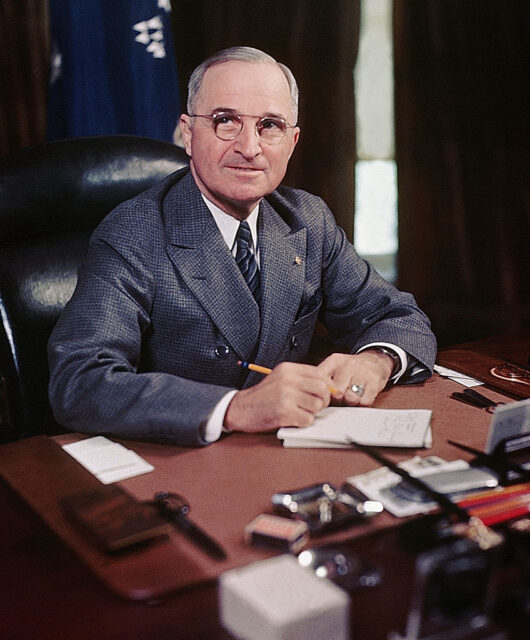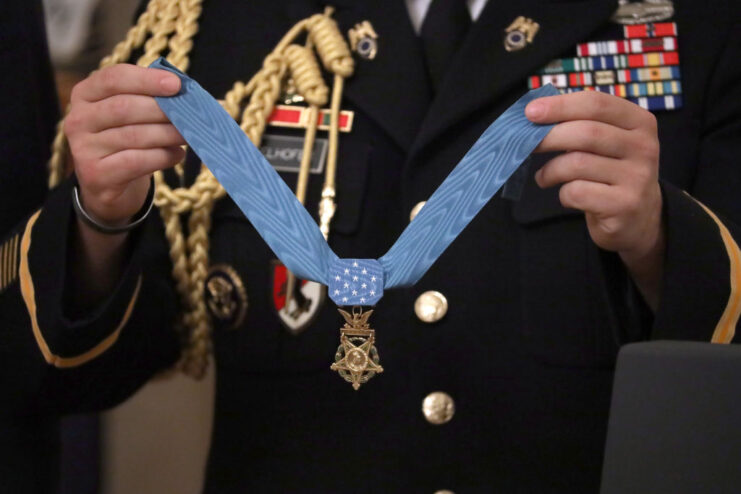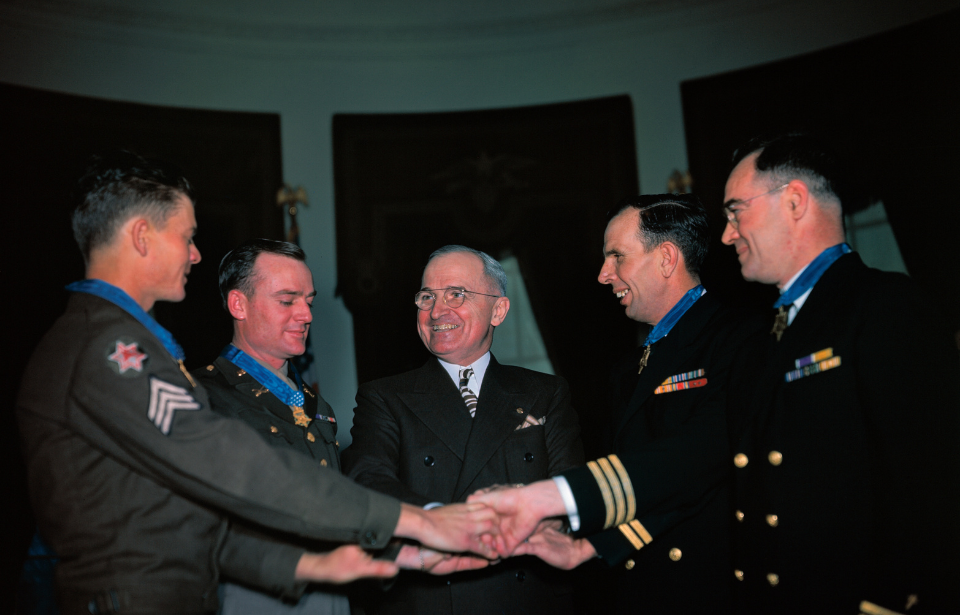The Medal of Honor is the United States’ highest and most prestigious military honor, and it’s typically awarded to recipients by the sitting president. When Harry Truman presented the medal, he often commented about how he’d prefer such an honor over being the president. Despite his clear admiration for it, Truman actually thwarted attempts to give him one.
A controversial post-war president

Harry Truman was a controversial figure and president. He helped rebuild a war-torn Europe and establish the North Atlantic Peace Treaty (NATO), and even made early progress in the civil rights movements. On the flip side, he was also disliked for his proposed policies and use of the only two nuclear weapons dropped in anger.
The deployment of Fat Man and Little Boy sparked a debate that continues to this day. Some argue the atomic bombs dropped on Hiroshima and Nagasaki were inhumane, unjustified and a show of force not just against Japan, but the Soviet Union. Others will say they saved more lives than they took, as they were a major factor in Japan’s surrender, preventing the need for an invasion of the mainland.
Regardless, Truman was presented with some of the most difficult decisions ever faced by a US president. In World War I, he was an artillery officer which familiarized him with military standards. Just five years after World War II, he dragged the country into the Korean War, causing his popularity to drop significantly.
Harry Truman was eventually replaced as president by Dwight D. Eisenhower. He had almost no chance of beating the heroic WWII-era commander, so opted not to run against him.
Harry Truman turns down the Medal of Honor

In more recent years, Harry Truman’s presidency has been viewed in a more positive light, and many now regard him as one of the nation’s greatest presidents.
As he oversaw the closing months of the Second World War and most of what occurred in Korea, he was no stranger to the Medal of Honor. However, when the US House of Representatives attempted to award him the honor in 1971, he wouldn’t accept it. In response, the 87-year-old former president said, “I don’t consider that I have done anything which should be the reason for any award, Congressional or otherwise.”
Although Harry Truman turned down the Medal of Honor, he was greatly appreciative of the gesture, viewing it as an honor of its own. He wrote a letter to Rep. William J. Randall (D-MO), which was read during a session of Congress. In it, he detailed why he wouldn’t accept the decoration. He believed that, as the medal was awarded for bravery in combat, changing the requirements for him would detract from its significance.
“This does not mean I do not appreciate what you and others have done, because I do appreciate the kind things that have been said and the proposal to have the award offered to me,” he wrote.
New! Want to become a trivia master? Sign up for our War History Fact of the Day newsletter!
More from us: The Republic F-84 Thunderjet Was the ‘Champ of the Fighter-Bombers’
Truman passed away in 1972, just a year after his humble rejection of the Medal of Honor. After his death, President Richard Nixon said in a statement, “Harry S. Truman will be remembered as one of the most courageous Presidents in our history, who led the Nation and the world through a critical period with exceptional vision and determination.
“Embroiled in controversy during his Presidency, his stature in the eyes of history has risen steadily ever since. He did what had to be done, when it had to be done.”
